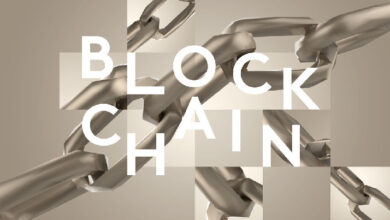Crypto pundit Polynya takes aim at ‘cripplingly bad’ monolithic blockchains

A post by crypto commentator Polynya went viral after alleging pointless and toxic competition between monolithic blockchain communities. With over 340,000 views on X (formerly Twitter), the post calls out hyperfocus on infrastructure while neglecting real-world use.
Polynya even took a swipe at supporters — renaming them “bagholders” — of any particular monolithic blockchain’s token: BTC, ETH, ADA, SOL, TRX, AVAX, LTC, BCH, XLM, BSV, XMR, etc. Polynya didn’t focus the critique on any particular protocol.
The post calls competition between blockchains a disgrace, saying that most developers should abandon “cripplingly bad” monolithic blockchains entirely.
Polynya was once a popular member of various crypto communities and had amassed some 90,000 followers on X before going on hiatus on June 2. The unexpected return to commentary attracted attention, mostly because of the blog post’s indiscriminate and emotionally charged rant against all blockchains.
Polynya simply argues why monolithic blockchains will never achieve global scale. Specifically, it appears impossible to have mobile devices verifying the integrity of every transaction on any major blockchain.
Full node hardware unsuitable for most humans
Obviously, the majority of humans only have access to mobile devices. Cell phones and tablets are inappropriate for always-on and>
Crypto twitter was *the* worst community I’ve ever participated in – a toxic hellhole that Sauron himself would envy. I will never return. However, I’m not afraid to drop one-off posts when narratives stray too far from the whole truth. https://t.co/XMEMuFCjvw
— polynya (@apolynya) November 17, 2023
Polynya says the biggest issue with monolithic blockchains involves the high hardware ‘overhead’ needed for normal users to use the blockchain in any meaningful way. As most monolithic blockchains are operating today, users must choose between confirming the validity of every transaction and trusting a third party to do the work for them.
So-called ‘light’ or pruned nodes exist, but these shortcuts still reintroduce trust in third parties. Non-full nodes can also limit a blockchain network’s ability to resist a worst-case scenario if there are not enough full nodes to archive and validate all transactions across the globe.
Read more: Ethereum centralization is becoming a serious problem
Crypto toxicity
Although Polynya went into significant detail critiquing monolithic blockchains, most of the post’s virality is likely attributable to its critique of toxicity.
Toxicity on social media, especially X (formerly Twitter), has been a particular issue for the digital asset community. Often, the most toxic are bagholders who are desperate to offload their bags onto others. That approach attracted a snip from Polynya, who hadn’t mentioned any blockchains in the blog post save one positive mention of Bitcoin.
Crypto twitter was *the* worst community I’ve ever participated in – a toxic hellhole that Sauron himself would envy. I will never return. However, I’m not afraid to drop one-off posts when narratives stray too far from the whole truth. https://t.co/XMEMuFCjvw
— polynya (@apolynya) November 17, 2023
The most hilarious part is that they come in to shill their bags seemingly *without even so much as opening the article*.
— antiprosynthesis.eth ⟠ (@antiprosynth) November 17, 2023
Polynya received plenty of sympathy in the comment and reply sections. “It’s unfortunate how some people prioritize promoting their own interests over having meaningful discussions,” said one reader.
Kyle Banta said, “There’s plenty of good in all of those communities, but the loudest are usually not the best.”
This function of monolithic blockchains limits accessibility among individuals who make up Bitcoin’s original target audience: Those who can’t open a bank account or want an alternative to mainstream finance. Indeed, removing trust in third parties is one of the primary value propositions in the original Bitcoin whitepaper.
Because most users can’t download and verify the integrity of every transaction on a blockchain, there’s little need for almost every monolithic blockchain. “Unless you don’t need scale, of course, like Bitcoin,” says Polynya.
There’s little benefit to using additional monolithic blockchains beyond Bitcoin if users must trust a third party anyway. If all of these various blockchains simply add additional trusted third parties, how are they aiding any meaningful improvement to finance?





